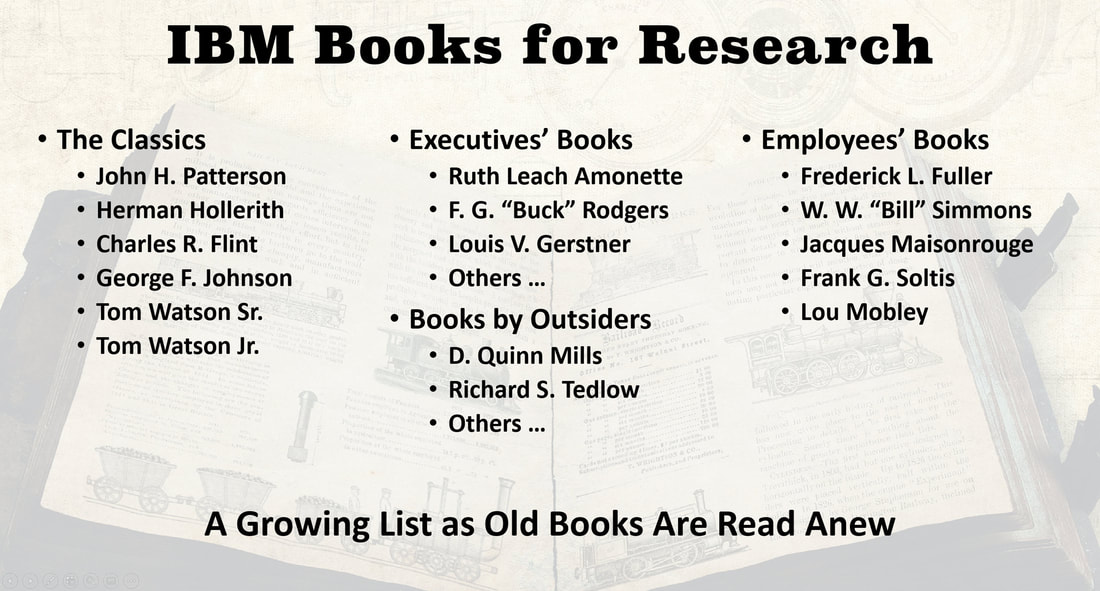IBM Books Home Page
|
|
Date Published: June 4, 2021
Date Modified: June 29, 2024 |
This is a selection of books used as reference material for Pete's focus on both the 20th and 21st Century IBMs. They include IBM Classics, IBM Executive and Employee books, and books by outsiders--those on the outside, looking in.
IBM Books for Research
|
IBM, over its 100-year history, has been one of the most followed, discussed, and documented businesses in American corporate history. These books are grouped into four categories: (1) The Classics, (2) The Executives' Books, (3) The Employees' Books, and (4) The Outsiders' Books.
Books will continue to be added to this bibliography. |
|
When all the powers of the executive's office would seem to ensure a limitless view, it must be hard for an executive to accept that his or her perspective may be obscured. She has the authority, the access and the ability to gather information simply by commenting on her need for it.
But she must be ever on her guard, watching for advisers—sycophants—who say what is easy to hear rather than what needs to be heard, for counselors who place blame rather than accept it, for predecessors concerned with their legacy rather than the business, and for electronic surveys of employee thoughts that cannot replace hearing them herself. Otherwise she is riding in a fog. |
|
While the executive’s view may be fraught with misperceptions, generalizations and isolation, the employee’s view may be myopic, superficial and limited, and either may be swayed by greed. No matter the position, to gain an expansive view requires communication, openness, patience and humility. It requires being an employee-owner.
The books highlighted here are some of many written by IBM employee-owners: IBMers |
|
These are books by academics, journalists, yellow-journalists, and, sometimes, those with an ax to grind against the company. Some of these fail the test of accuracy, fairness and balance and are called out as such. Some are blessed with the view of the outsider--an impartial, unbiased and objective look at the company's methods and practices.
This author gives his view on them. Read them and form your own. |
